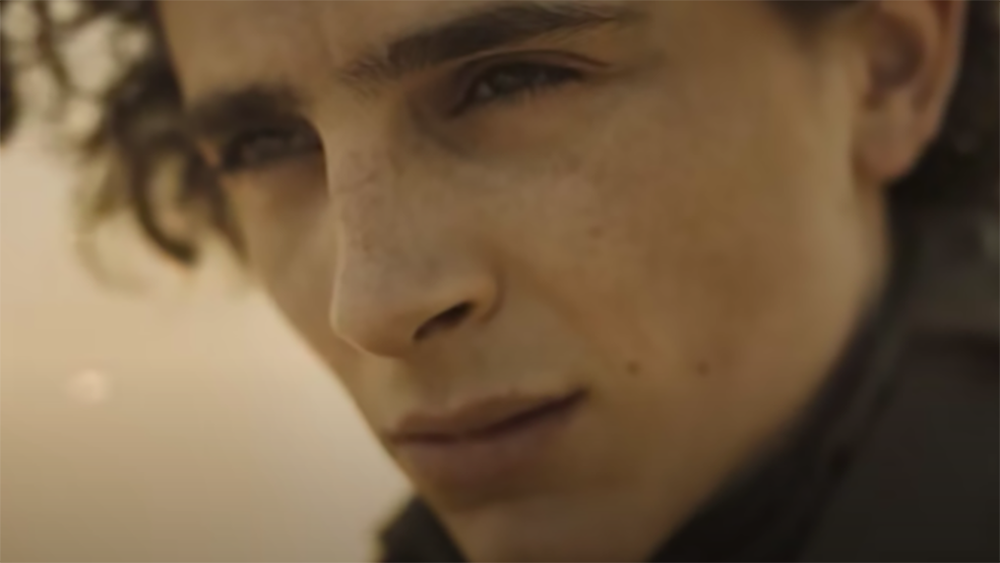For a long time, the film community has wondered why there hasn’t been a good Dune adaptation. It’s prime material for a sci-fi classic: huge worlds, strange alien creatures and a dense and rich system of government, culture and politics. However, the same factors that make it so interesting also make it hard to fully capture in under three hours.
It’s been attempted once before, by David Lynch in 1984 — but numerous critics and fans alike panned the film. Cut to the modern age and the task of adapting this sci-fi classic has been given to one of the most prolific directors of the past decade: Denis Villeneuve.
Born in Quebec, Canada, Villeneuve’s interest in filmmaking started at the Université du Québec à Montréal, where he studied cinema. Soon after, Villeneuve began to direct short films and entered them into competitions, progressing the scale and scope of his works a step forward. His first directorial debut came at the age of 30 with August 32nd on Earth, a drama that Canada selected for its Academy Award best foreign language film entry.
Two years later, Villeneuve released Maelström, winning Best Canadian Feature Film at the Toronto International Film Festival, further expanding the recognition and critical acclaim for his work.
[Sable replaces combat stakes with excellent storytelling]
But it wasn’t until 2009’s Polytechnique and 2010’s Incendies that Villeneuve would receive worldwide acclaim. Both films featured heavy material; Polytechnique is about a shooting at a Montreal university, and Incendies is about a civil war in the Middle East. The two films showcased a refinement in Villeneuve’s style, as both took a grittier and more methodic pace to their plots.
Incendies was a particular standout, as its scope and setting were much bigger than Villeneuve had ever attempted before. It demonstrated not only that Villeneuve could direct a tight and gritty drama, but that he could also make big budget films with heavy material that were both commercially and critically successful. Add an Oscar nomination for Incendies to that resume, and studios were clamoring to produce Villeneuve’s work.
His next films — Prisoners, Enemy, Arrival and Sicario — all continued this trend of steady refinement and increased critical and public acclaim. From 2014 to 2016, Villeneuve established his presence in the American market, working with more high profile actors and cinematographers such as Jake Gyllenhaal, Hugh Jackman, Amy Adams and Roger Deakins. Prisoners and Arrival would go on to become nominated for best cinematography and best picture at the Academy Awards, respectively.
By 2016, Villeneuve’s directorial style was tried and tested, and he had found his creative space within filmmaking. Looking from Prisoners onward, there’s a clear theme of “less is more;” Arrival and Prisoners both feature slow, methodic camera work along with reserved dialogue. The result is a very atmospheric and clean feel to his films, with the details and meanings sitting under the surface.
A huge part of creating this feeling is also the score, which Villeneuve often relies on frequent partners and industry veterans Jóhann Jóhannsson and Hans Zimmer. The scores tend to feel like a part of the world rather than a musical backplate and go hand in hand with the cinematography.
Villeneuve’s picture style is often crisp and clean, with clear tonal shifts achieved through the color grading and sets. Along with frequent collaborator Roger Deakins, Villeneuve has established a camera style that instills the viewer with a feeling of both awe and discomfort — showing off huge breathtaking landscapes while also lingering on the uncomfortable and often violent scenes.
[Makeup users find ways to show off their looks with masks on]
In terms of characters, Villeneuve frequently explores the relationships between strong women and morally corrupt men. In both Incendies and Polytechnique, he juxtaposes women in suffering from the men who caused it, taking a look at how both react and evolve with what they have done and what has happened to them.
In a way, all of these films led up to Villeneuve’s latest feature: Blade Runner 2049. Not only is it one of Villeneuve’s best films to date, but it’s also one of his most daring: creating a sequel for a 1982 commercial flop while also paying homage and respect to the original’s huge cult following. Along with Roger Deakins and Hans Zimmer, Villeneuve was able to create a vast and layered film with gorgeous cinematography and an otherworldly score, while also being true to the original.
So, when Warner Bros. wanted to make an adaptation of the sci-fi mega drama Dune, there was one obvious choice. The trailers already showcase all of Villeneuve’s trademarks: stunning cinematography, a refined color palette and a layered plot. We’ll find out how it fares when Dune releases in theaters and on HBO Max Oct. 22.



